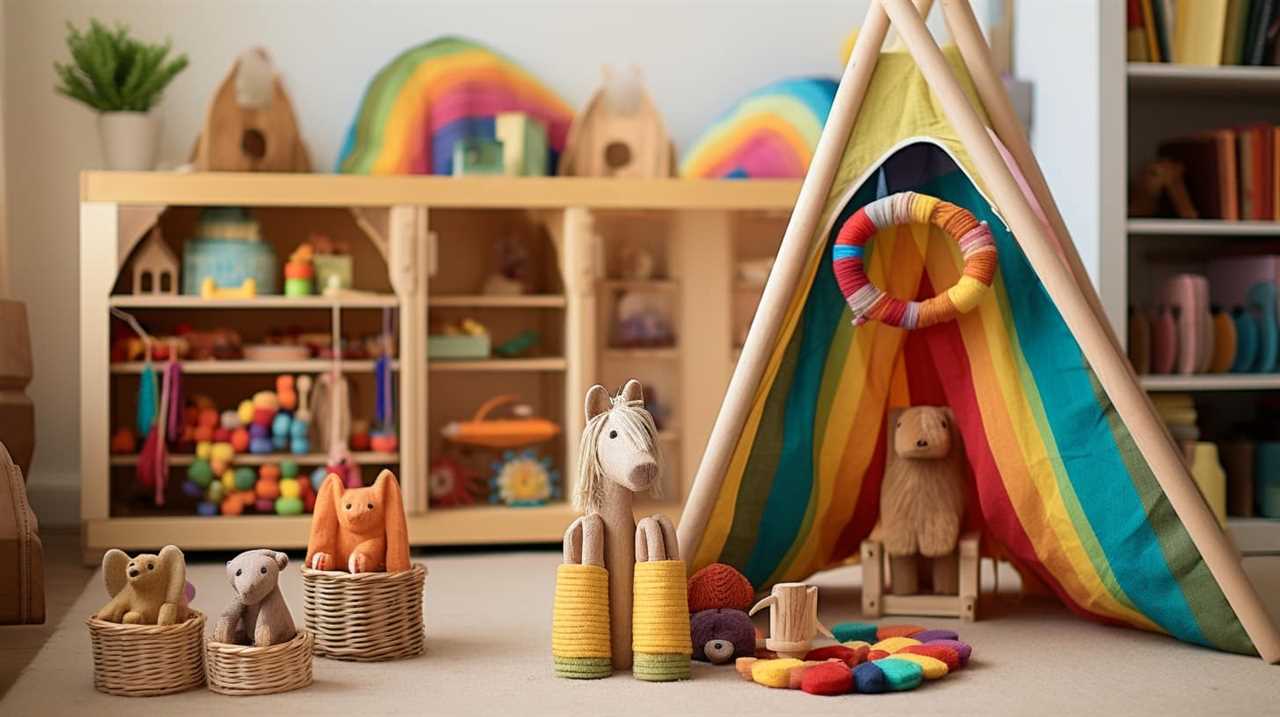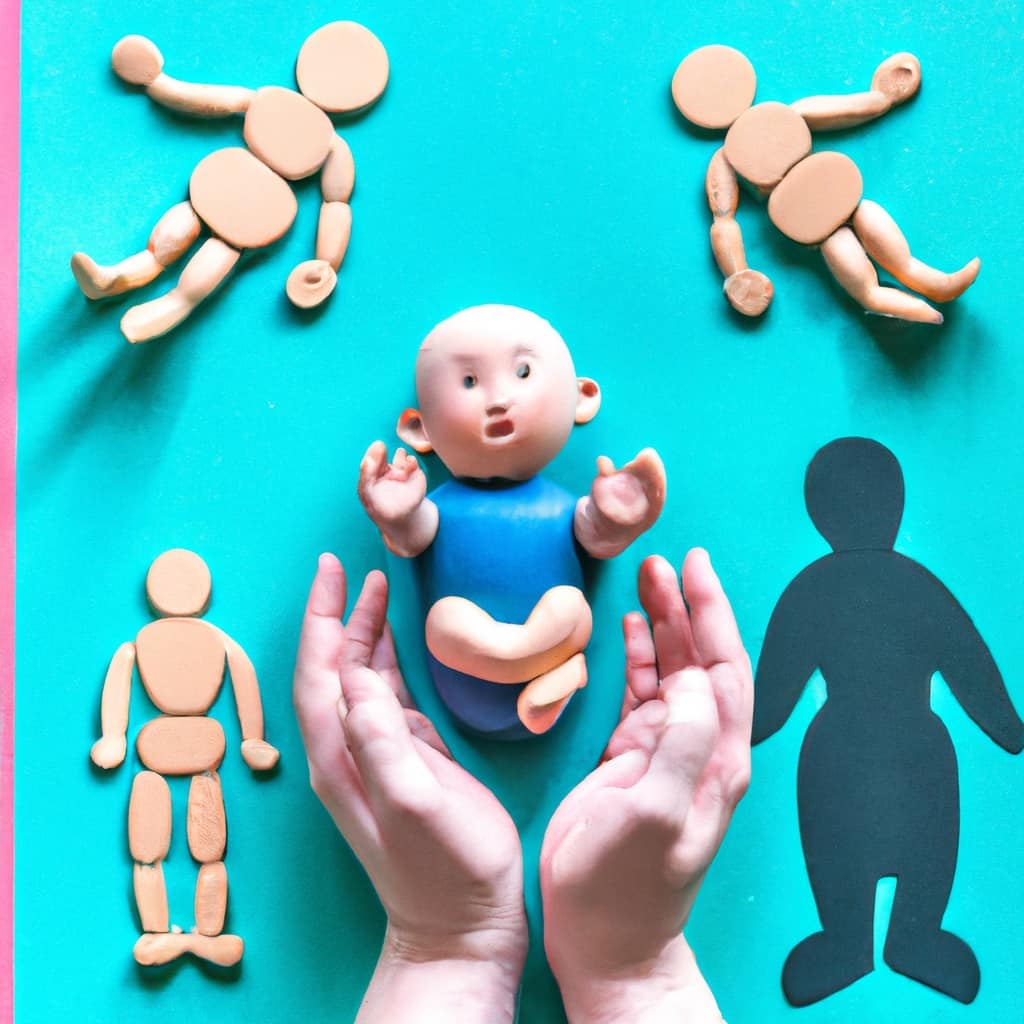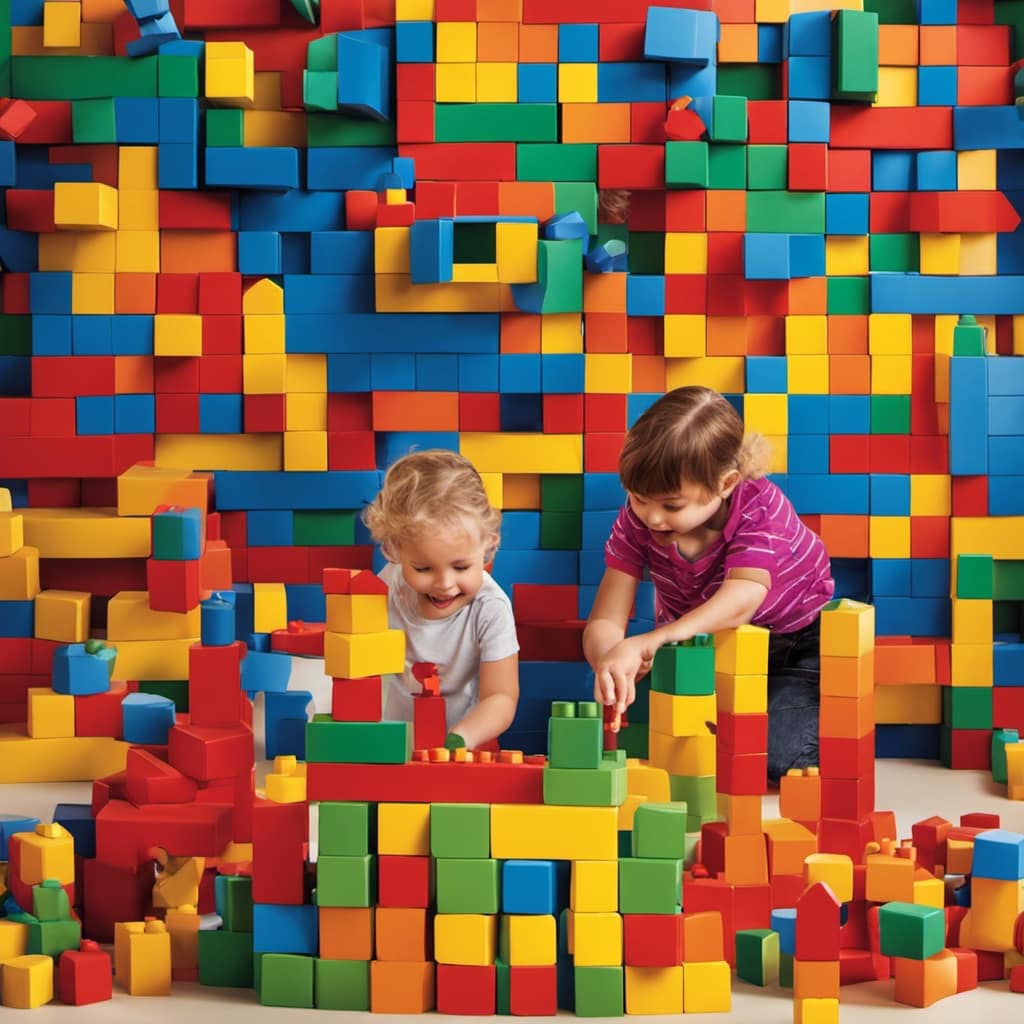As an individual studying the growth phases of children, I’ve found myself continuously fascinated by the impact that self-confidence has on a child’s progress and successes. It’s remarkable to witness the substantial change that even a small amount of self-confidence can bring about.
In this article, we will delve into the power of self-confidence in child development and explore its various benefits. From academic performance to resilience and healthy relationships, self-confidence plays a crucial role in shaping a child’s future.
So, let’s uncover the secrets behind building self-confidence and empowering children to believe in themselves.
Key Takeaways
- Self-confidence improves motivation, academic achievement, and mental well-being.
- It helps children handle setbacks, challenges, and stress.
- Self-confidence enhances social connections, communication skills, and resilience.
- Self-confidence acts as a guide for goal-setting, decision-making, and leadership development.
The Benefits of Self-Confidence in Child Development
I believe that self-confidence plays a crucial role in child development. It improves motivation, academic achievement, and mental well-being. Building self-confidence in children can be achieved through various strategies.
Firstly, parents can provide a supportive and nurturing environment. This encourages children to take risks and try new things. They can praise their efforts and achievements, as well as provide constructive feedback to help them grow.
Additionally, parents can help children set realistic goals and celebrate their successes, no matter how small. By doing so, parents can instill a sense of belief in their children’s abilities and foster their self-confidence.

Ultimately, the role of parents in developing self-confidence is vital. They serve as role models and provide the necessary guidance and support for children to develop a strong sense of self-worth.
How Self-Confidence Impacts Academic Performance
Improving academic performance, motivation, and engagement, self-confidence enables students to set high goals and work diligently to achieve them. It has a profound impact on motivation and engagement in academic settings. Here’s how self-confidence influences academic performance:
- Self-confident students are more motivated to learn and excel.
- They actively participate in class discussions and ask questions.
- They are willing to take on challenges and persevere through difficulties.
- Self-confidence boosts their belief in their abilities to succeed academically.
- It enhances their focus and concentration, leading to better learning outcomes.
Research shows that students with higher self-confidence are more engaged in their studies, leading to improved academic performance.
Building Resilience and Coping Skills Through Self-Confidence
Developing resilience and coping skills through self-confidence equips individuals with the ability to overcome challenges and effectively manage stress. Self-confidence plays a crucial role in building adaptability and problem-solving skills. It fosters the belief that one can handle difficult situations and find solutions. When faced with obstacles, self-confident individuals are more likely to approach them with a positive mindset and actively seek ways to overcome them. This mindset promotes the development of problem-solving skills, as individuals become more confident in their ability to find creative solutions. Additionally, self-confidence helps individuals build adaptability by encouraging them to embrace change and view it as an opportunity for growth. By developing resilience and coping skills through self-confidence, individuals are better prepared to face and overcome the challenges that life throws their way.
| Ways Self-Confidence Helps Develop Problem Solving Skills | Ways Self-Confidence Builds Adaptability |
|---|---|
| Encourages positive mindset and belief in one’s abilities | Promotes embracing change and seeing it as an opportunity for growth |
| Enhances creativity and innovative thinking | Cultivates flexibility and openness to new experiences |
| Boosts confidence in decision-making abilities | Fosters willingness to take risks and explore new possibilities |
Developing Healthy Relationships Through Self-Confidence
Fostering strong social connections and effective communication skills are key benefits of having self-confidence. Developing assertiveness skills and promoting healthy communication are crucial aspects of building and maintaining healthy relationships. Here are five ways self-confidence helps in this process:
- Self-confidence allows individuals to express their thoughts and feelings clearly and assertively.
- It enables individuals to set boundaries and communicate their needs effectively.
- Self-confident individuals are more likely to engage in active listening and empathetic communication.
- They are better equipped to handle conflicts and disagreements in a constructive manner.
- Self-confidence promotes positive self-image, which enhances social interactions and builds trust with others.
The Connection Between Self-Confidence and Emotional Well-being
Understanding the link between self-confidence and emotional well-being is crucial for promoting positive mental health outcomes.

Research has shown that self-confidence plays a significant role in mental health, particularly in children.
Promoting self-confidence in children through positive affirmations is an effective strategy. Positive affirmations help children develop a positive self-image, enhance their self-esteem, and build resilience.
By encouraging children to believe in their abilities and strengths, they are more likely to experience improved emotional well-being.
Positive affirmations also foster a sense of self-worth and confidence, reducing the risk of anxiety and depression.
As children grow, their self-confidence serves as a protective factor against mental health challenges.
It is essential to recognize and nurture the role of self-confidence in mental health to support children’s overall well-being.

Signs of Lacking Self-Confidence in Children
I can easily identify signs of low self-esteem, social withdrawal, anxiety, and self-doubt in children lacking self-confidence. These signs can manifest in various ways, such as a child avoiding social interactions, constantly seeking reassurance, displaying negative self-talk, or feeling overwhelmed in new situations.
Strategies for building self-confidence in children involve the active involvement of parents. Some effective approaches include providing a nurturing and supportive environment, encouraging and praising their efforts, setting realistic goals, and celebrating their achievements.
Parents can also teach problem-solving skills and help children develop a growth mindset, where they understand that their abilities can be improved through effort and practice. By modeling self-confidence and resilience, parents play a crucial role in fostering their children’s self-esteem and belief in themselves.
The Dangers of Excessive Self-Confidence
Excessive self-confidence can lead to negative outcomes such as arrogance, lack of empathy, and hindered learning and growth.
While confidence is important, it becomes dangerous when it crosses the line into excessive self-assurance. Arrogance can make children appear boastful and dismissive of others’ opinions, hindering their ability to build healthy relationships.
Additionally, an overabundance of self-confidence can lead to a lack of empathy, as children may struggle to understand and connect with the emotions and experiences of others.

Furthermore, excessive self-confidence can hinder learning and growth because it may prevent children from seeking help or feedback, thinking they already know everything.
To build healthy self-confidence in children, it is important to promote a balance of self-assurance and humility, encourage empathy and understanding, and foster a growth mindset that values continuous learning and improvement.
The Long-Term Effects of Childhood Self-Confidence
Growing up with a strong sense of self-assurance positively influences various aspects of long-term well-being and success. The role of parental influence in childhood self-confidence cannot be underestimated. Research shows that parents who provide unconditional love, support, and encouragement foster a child’s self-confidence. This creates a foundation for future success, including career achievements.
The impact of self-confidence on future career success is substantial. Self-assured individuals tend to set ambitious goals and pursue them with determination. They are more likely to take risks and seize opportunities, leading to career advancements. Moreover, self-confidence enhances decision-making abilities, leadership skills, and communication prowess, all of which are essential for professional success.
Strategies for Boosting Self-Confidence in Children
One effective strategy for boosting self-assurance in children is providing unconditional love and support. Research shows that when children feel loved and supported, they are more likely to develop a positive sense of self and higher levels of self-esteem.
Another strategy for building self-esteem is encouraging children to set achievable goals and praising their efforts and accomplishments. This helps them develop a sense of competence and confidence in their abilities.

In the school setting, fostering self-confidence can be done by creating a supportive and inclusive environment where children feel valued and respected. Providing opportunities for students to participate in class activities, express their opinions, and receive constructive feedback can also contribute to building self-confidence in school.
Nurturing Self-Confidence Through Positive Reinforcement
Encouraging and acknowledging their efforts and accomplishments will help children develop a strong sense of self-assurance. Here are some strategies for encouragement and fostering self-belief:
- Provide specific and genuine praise for their achievements.
- Celebrate their progress and milestones, no matter how small.
- Encourage them to take on new challenges and step out of their comfort zone.
- Teach them positive self-talk and help them reframe negative thoughts.
- Set realistic expectations and provide support and guidance as they work towards their goals.
Research shows that these strategies can have a significant impact on children’s self-confidence and overall well-being. By creating a nurturing and positive environment, we can help them develop a strong belief in their abilities, which will benefit them in all aspects of life.
Empowering Children to Believe in Themselves
Believing in myself has been crucial in unlocking my full potential and thriving in all areas of my life.
Research shows that building self-esteem through positive affirmations is essential for children’s development. By encouraging risk-taking and resilience, we empower children to believe in themselves.
Positive affirmations are powerful tools that help children develop a positive self-image and boost their self-esteem. By regularly affirming their abilities and strengths, children learn to embrace challenges and believe in their own capabilities.

Encouraging risk-taking and resilience allows children to step out of their comfort zones, learn from failure, and bounce back stronger. This fosters a growth mindset and prepares them for future challenges.
Empowering children to believe in themselves is a key factor in their overall development and success.
Frequently Asked Questions
What Are Some Practical Strategies for Boosting Self-Confidence in Children?
Practical strategies for boosting self-confidence in children include providing encouragement, setting achievable goals, praising effort, teaching problem-solving skills, promoting positive self-talk, and fostering a supportive environment. Building resilience helps develop self-confidence.
How Does Nurturing Self-Confidence Through Positive Reinforcement Impact a Child’s Development?
Nurturing self-confidence through positive reinforcement impacts a child’s development by empowering them to believe in their abilities. Parents and teachers play a crucial role in providing support and encouragement, leading to improved social interactions and overall well-being.
What Role Does Empowering Children to Believe in Themselves Play in Building Self-Confidence?
Empowering children to believe in themselves plays a crucial role in building self-confidence. Building resilience and the importance of parental support are key factors in fostering a strong sense of self and promoting lifelong well-being.
Are There Any Potential Dangers or Negative Effects Associated With Excessive Self-Confidence in Children?
Excessive self-confidence in children can have potential dangers and negative effects. It may lead to arrogance, lack of empathy, and hinder learning and growth. It’s important to promote a balanced sense of self-confidence.

How Does Childhood Self-Confidence Impact Long-Term Success and Achievement in Various Areas of Life?
Childhood self-confidence significantly impacts long-term success and achievement. It correlates with improved academic performance and sets the foundation for strong social relationships and positive emotional well-being.
Conclusion
In conclusion, self-confidence is like a beacon guiding a child through the stormy seas of life. It empowers them to navigate challenges with grace and resilience, unlocking a world of opportunities.
Like a sturdy foundation, it supports their academic success, building a bridge to achievement.
It fosters healthy relationships, like the sunlight that nourishes a blooming flower.
And it guards their emotional well-being, shielding them from the shadows of anxiety and depression.
With self-confidence as their ally, children can conquer the world and become the best versions of themselves.











